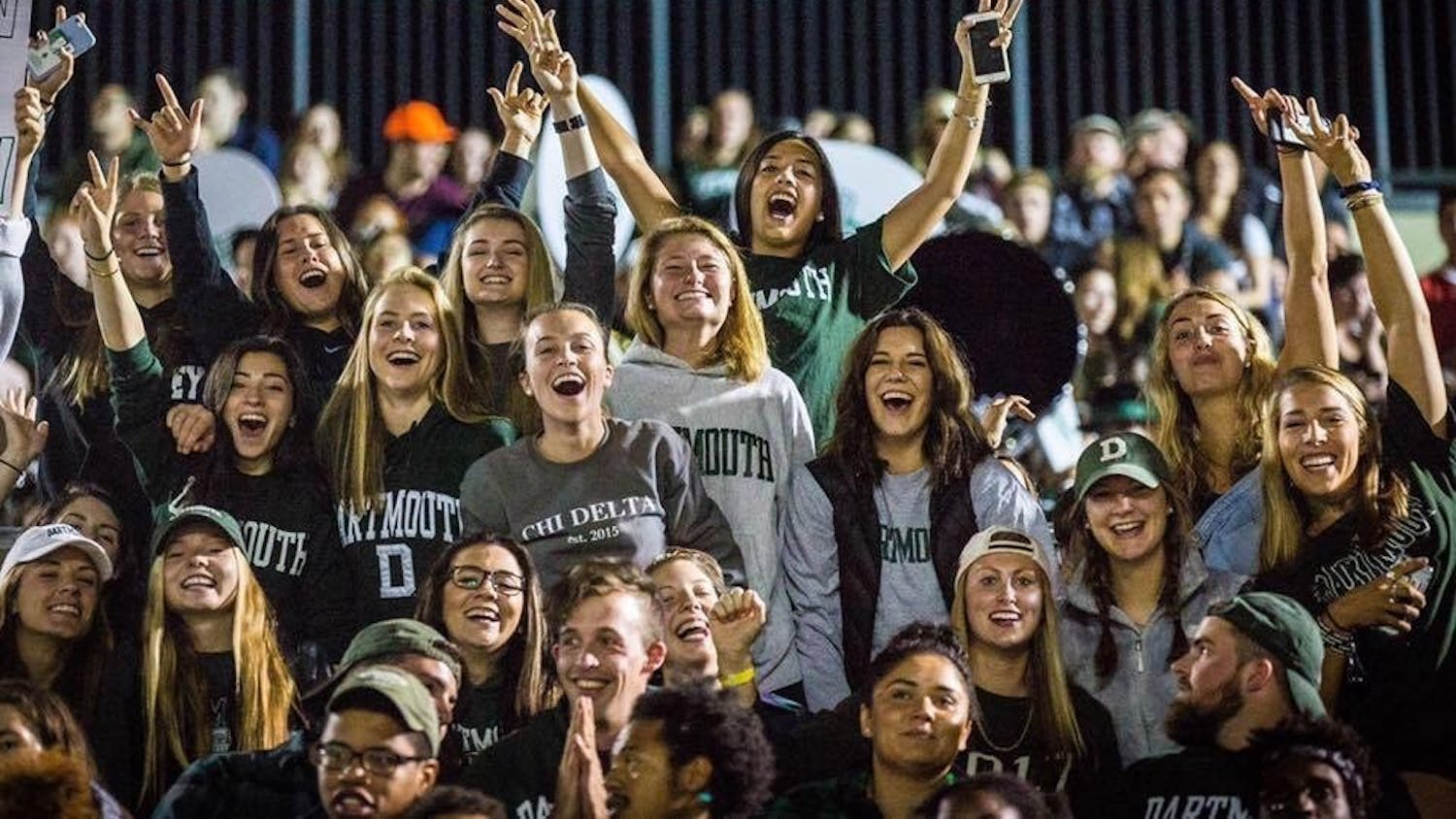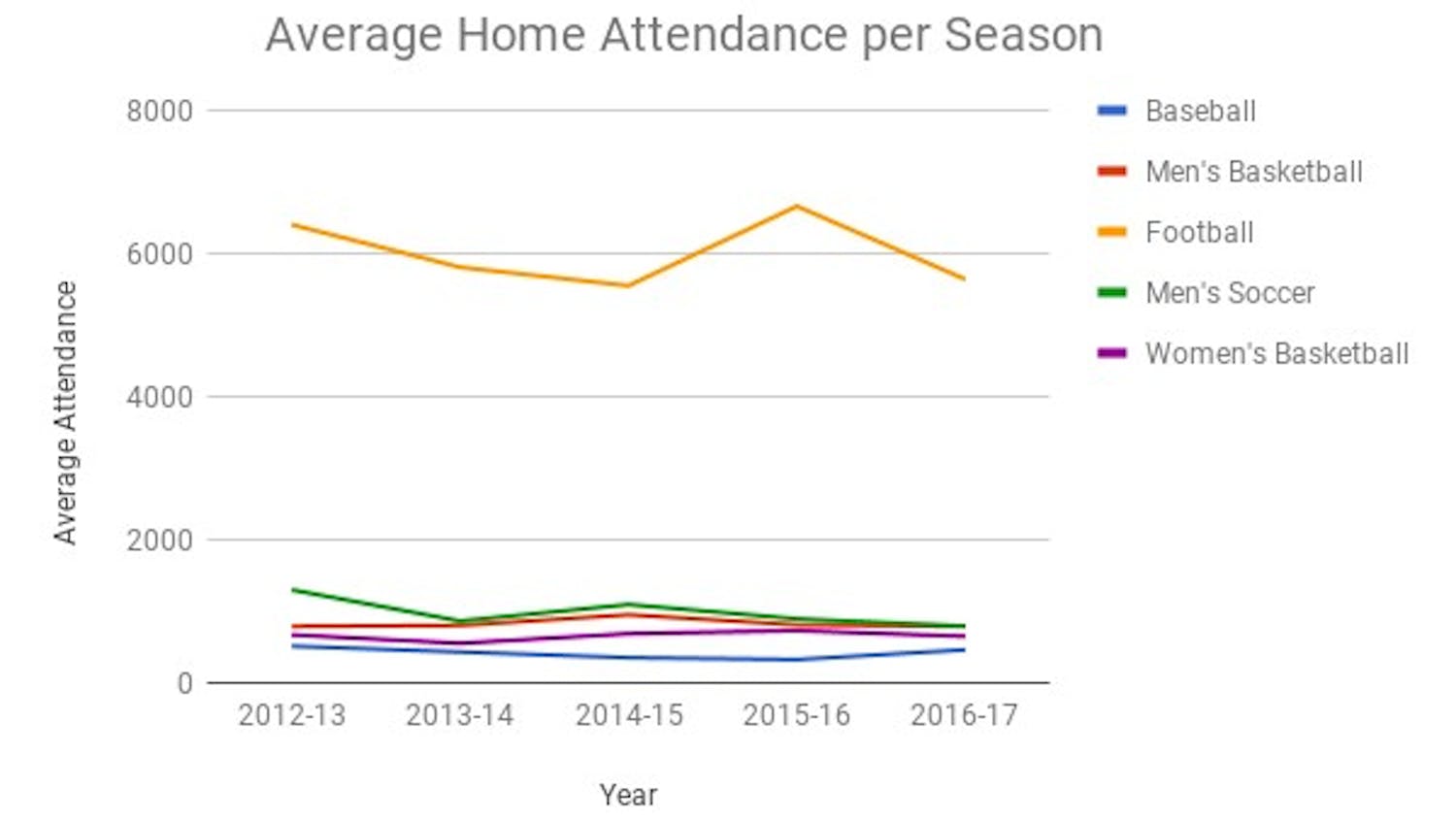If there’s one thing I’ve learned since arriving on campus three weeks ago, it’s that Dartmouth rarely makes sense. Many aspects of this school have left me flustered — namely, how to order stir-fry at Collis or why GreenPrint takes at least 45 minutes to print out a two-page document. However, one aspect of Dartmouth that has particularly stood out to me is the discrepancy between the prominence of athletes and the lack of support for their games.
According to the College, nearly 25 percent of students on campus participate in intercollegiate sports. However, most non-athletes are rarely seen on the stands. In fact, the College has recently taken measures to incentivize Dartmouth students and members of the Upper Valley to attend games by offering giveaways and organizing tailgates, among other tactics. Turnout has been slowly increasing, but the numbers are still low. If there are so many athletes on campus, shouldn’t sports games be much bigger events?
On Saturday, my floor and I went to the varsity soccer game against Princeton to support one of our floormates. Looking around the stands, I soon noticed that we were some of the only non-athletes in the crowd. Most of the supporters seemed to have come from other teams and didn’t seem to be in support of a particular player.
Isabella Santucci ’22, a field hockey player, confirmed that other athletes usually make up the majority of the crowd at most games. She said that teams show up at games to offer support for their fellow athletes.
“The soccer team, for example, came to one of my games last week. The whole team was there, their entire team supporting our team, so that made us be like, ‘Ok, now we’re all going to go to one of their games,’” Santucci said.
Harrison Markell ’22, who is on the hockey team, said that while non-athletes occasionally come to games, they usually know at least one player on a personal level.
“For the average game, most people that are there are just going to be able to know someone on the team or are in the same club or organization,” Markell said.
Peter Coppedge ’21 does not participate in sports on campus, and his experiences line up with Markell and Santucci’s perceptions. He said that he will attend sports games with his friends for fun if there is a big crowd or a specific team member that he wants to support.
“I think more athletes go to support other teams than NARPs [non-athletic regular persons] do, but also I would say of the NARP population there’s at least 20-25 percent that still go to games pretty religiously.”
So, does an “athlete culture” exist at Dartmouth? If it does, it’s not intentional, Santucci said. She said that athletes hang out together a majority of the time because they share similar interests and schedules. Athletes tend to stick together out of “conveince,” Santucci said.
Santucci also expressed the benefits of having non-athlete friends, saying it was often refreshing to have connections outside of the tight team bond.
“I kind of wish there wasn’t all this talk about ‘athletes vs. NARPs,’ because I genuinely don’t think there’s any personality or character difference between the two. And I love my non-athlete friends just as equally as I love my athlete friends,” Santucci said.
Markell also said he believes that athletes tend to self-segregate due to their schedules rather than character differences.
“I wouldn’t say there’s anything like ‘athletes and nonathletes don’t hang out’, it sometimes just works out that way, but it’s not by design.”
Coppedge agreed that while athletes and nonathletes are not wholly divided, athletes do tend to spend more time together.
“Dartmouth is a pretty integrated campus. I have a lot of friends who are athletes, but probably more who aren’t. I wouldn’t say that NARPs and athletes are two divided groups on campus, they’re pretty integrated, but I would say that the sports teams on this campus are definitely more of a group that is insular than other groups on campus,” Coppedge said.
Coppedge also noted that while many Dartmouth students seem to have boundless school spirit, it does not usually translate to supporting teams on the field. Santucci also said that she believes having more school spirit surrounding athletics could make student life more enjoyable.
“To have that element of school spirit would make our social lives more fun, and I think other teams on campus would just have a lot more fun as well knowing there’s such a strong fanbase,” Santucci said.
Most students at Dartmouth tend to agree that we juggle busy schedules, athletes and non-athletes alike. But the next time I receive a blitz to come to Burnham at 4 p.m. on a Friday, I will take the extra effort to support my fellow classmates and show up. And hey, I might just have a lot of fun in the stands.



